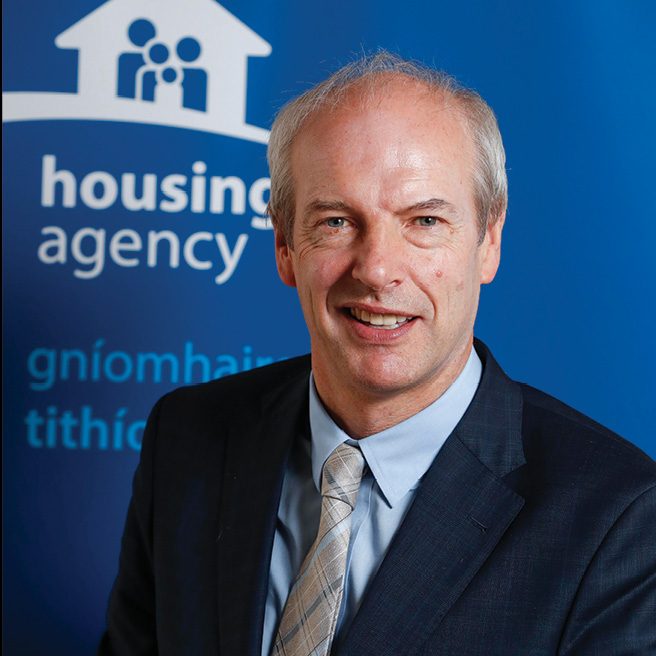
Social housing funding models
19th July 2017
Building strong and sustainable communities is important
19th July 2017Plan-led development is the future

Planning specialist Henk van der Kamp believes that the country must have a planning process that delivers for the environment, the economy and every citizen.
For this to happen requires the putting in place of very clear, strategic frameworks. Which according to van der Kamp, has not always been the case in Ireland.
He views the role of planning as that of promoting a balanced spread of economic and development opportunities across a region.
Van der Kamp also foresees major challenges coming down the track, which Ireland’s planning procedures must be fit to cope with. One of these is population growth.
“Population growth is uncertain, as is future household formation,” he says.
“There is also uncertainty regarding which landowners will submit planning applications. The same principle holds when it comes to determining which permissions will be granted.”
Van der Kamp referenced two types of planning model. “Project-led planning invites developers to submit planning applications. These are discretionary in nature and can be subjected to third party appeals,” he says.
“Plan-led models, on the other hand, entail the development of detailed planning schemes, which provide a framework for planning applications. This type of development is regulatory in nature and would not be subject to third party appeals.”
Van der Kamp expresses the view that plan-led development is the model that would best fit Ireland’s need in current circumstances.
“We need forward planning and to set out where and how an area should grow spatially in terms of roads and housing. This is done in a county development plan, but more likely through a local area plan, which is already included in current legislation,” he says.
“In essence, we need more local area plans and more forward planning for a region before development takes place and even before the pressures arise. We should think about how the area should develop and set this out in writing courtesy of a clear plan.”
“Planning must embrace uncertainty factors to be effective. There is strong evidence to show that plan-led growth can reduce the impact of these uncertainties.”
These comments resonate with the thrust of the report produced by van der Kamp, at the request of the Irish Government, regarding the 2013 Planning Review. The academic specifically pointed out that private landowners or developers should be prevented from putting forward Local Area Plans.
He also pointed out that proposed grants of planning permission that contravene a Development Plan should be automatically referred to An Bord Pleanála for final determination.
Van der Kamp suggests out that a development-led approach is one where the planning system responds to project proposals from developers in an ad hoc manner.
“This does not necessarily mean it makes bad decisions. It deals with each application on its own. A plan-led approach lays down a framework for development so that the development sector has certainty and predictability,” he says.
“This does not only apply to housing development, but also to wind energy products plus industrial and commercial development initiatives. Our planning system provides for much of this already, but there is room for significant improvement in regard to the implementation phase and planning permission.”
Van der Kamp highlighted the example of Dublin’s Cherrywood planning scheme, in this context.
“Three growth areas, comprising eight development regions have been identified,” he says.
“Infrastructure thresholds for the individual development areas have been agreed. Each development area must be constructed to a prescribed minimum level of development.”
Van der Kamp believes that spatial planning and energy efficiency go hand-in-hand. He referred to the recently published pan-European guide, which specifically relates to spatial planning for energy, as being the result of a three year project, funded by Intelligent Energy Europe.
“The guide is as relevant for planners as it is for the public at large,” he said. “It addresses the challenge of energy use reduction and lowering greenhouse gas emissions, which are objectives that confront all of us.”
According to van der Kamp, the guide has 10 themes, each reflecting a key principle of planning. Three objectives are outlined in the context of each theme along with 10 recommendations. Two case studies, undertaken as part of the development work for the new guide, are also featured within a thematic context.
“Spatial planning has a fundamental role in the implementation of successful and long-term sustainable energy solutions,” he says.
“Across Europe, planning departments have a strategic position within local and regional government, which can be used to achieve the European Union’s 2020 targets for carbon emissions reduction and energy efficiency, and to increase energy generation from renewables.”
Where master planning is concerned, the new guide emphasises the opportunities that now exist to plan comprehensively for a new development, or for the regeneration of part of a city.
“In relation to sustainable energy, master planning is a useful tool to allow the full integration of climate change mitigation and adaptation objectives into the development of an area,” says van der Kamp.
“The objectives here are for planners to take full control of a new development from the very outset. This will have major implications for energy saving and the use of more efficient energy-related technologies.”
Van der Kamp projected a vision for new housing developments in urban areas. These would comprise narrower units with no front gardens. He adds: “No one really uses their front garden anyway. So why not use this space for car parking?
“The area at the back of the house can be used for recreational purposes. In this way, we can make much better use of the total space available in tightly packed urban areas.”
He concludes: “Planning must embrace uncertainty factors to be effective. There is strong evidence to show that plan-led growth can reduce the impact of these uncertainties. Moreover, this type of plan-led development is also necessary to achieve energy targets.”






